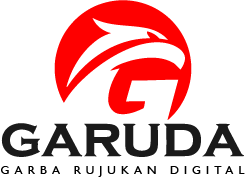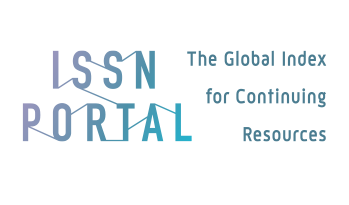HUBUNGAN PENGGUNAAN MEDIA SOSIAL TERHADAP SELF EFIKASI PADA REMAJA PUTRI
DOI:
https://doi.org/10.37776/zkeb.v15i3.1888Abstract
Self-efficacy is a person's belief in their ability to master a situation and produce something profitable, teenagers prefer to use social media because they can write anything without feeling awkward and embarrassed according to their mood without fear of being embarrassed by others. The purpose of the study was to determine the relationship between the use of social media and the self-efficacy of young women in Karimun Regency. Quantitative research method, cross-sectional approach, from March to May 2024. Place in Tanjung Balai Karimun. The population in this study were young women in the Tanjung Balai Karimun Health Center Working Area totaling 21,819 people. The sampling technique used was purposive sampling, namely the selection of samples based on certain characteristics or traits related to the characteristics of the population based on the considerations of researchers totaling 90 people. The analysis used the test carried out was chi square with a significant limit <0.05, in this bivariate analysis using a computer program. The results of the study on the use of social media from 90 respondents, the majority of social media use was in the moderate category of 70 respondents with a percentage (77.7%). Self-efficacy of female adolescents. Out of 90 respondents, the majority have moderate category self- efficacy with a percentage (68.8%) of 62 respondents. Conclusion: There is a significant relationship between the use of social media and self-efficacy of female adolescents because the p-value (0.000) <0.05 . Keywords: Social Media, Self Efficacy, Adolescent GirlsDownloads
References
Annizar, A M, Masrurotullaily, M H D Jakaria, M Mukhlis dan F Apriyono. “Problem solving analysis of rational inequality based on IDEAL model.” Journal of Physics: ConferenceSeries, (2020): 1
Asna, Megawati Mahali. “Pengaruh Penggunaan Media Sosial dan Pola Asuh Orang Tua Demokratis terhadap Prestasi Belajar Siswa kelas VI Madrasah Ibtidaiyah Sekota Batu.”Tesis, UIN Maulana Malik Ibrahim Malang, 2018.
Bandura, Albert. Self-Efficacy the Exercise of Control. New York: W.H. Freeman and Company, 1997.
Bandura, Albert. Social Foundations of Thought and Action: A Social Cognitive Theory, Englewood Cliffs, NJ: Prentice Hall, 1986. Children Cafe (@childrencafeid), “Seperti Apa Sih Karakteristik Anak atau Remaja yang Memiliki Motivasi Berprestasi Tinggi.” Instagram foto, Agustus 17,2021. https://www.instagram.com/p/CCGslPBp2db/
Cahyono, A. S. 2016. Pengaruh media sosial terhadap perubahan sosial masyarakat di Indonesia.
Publiciana, 9 : 140-157.Dedyerianto. “Pengaruh Internet dan Media Sosial terhadap Kemandirian Belajar dan Hasil Belajar Siswa.” Al-Ta’dib: Jurnal Kajian Ilmu Kependidikan 12, no. 02 (2019): 208- 225. Faizal, A. A., Naim, M., & Fauzi, A. 2022. Fenomena Instagram sebagai Sarana Eksistensi pada Kelompok Remaja di Kelurahan Sudimara Selatan. Buana Komunikasi (Jurnal Penelitiandan Studi Ilmu Komunikasi), 3 : 7-15.
Fauzia, A. Z., Maslihah, S., & Ihsan, H. 2019. Pengaruh tipe kepribadian terhadap self-disclosure pada dewasa awal pengguna media sosial instagram di kota bandung. Journal of Psychological Science and Profession, 3: 151-160
Fitri, E., Zola, N., & Ifdil, I. 2018. Profil kepercayaan diri remaja serta faktorfaktor yang mempengaruhi. JPPI (Jurnal Penelitian Pendidikan Indonesia), 4 : 1-5.
Hanifa, S. N., Sugiyo, S., & Setyowani, N. 2012. Meningkatkan Keterbukaan Diri Dalam Komunukasi Antar Teman Sebaya Melalui Bimbingan Kelompok Teknik Johari Window.Indonesian Journal of Guidance and Counseling: Theory and Application, 1 : 2- Internet World Statistics. 2022. Asia Internet Stats by Country and 2022 Population Statistics.Internet World Statistics. https://www.internetworldstats.com/asia.htm. Diakses pada 12september 2023.
Sugiyono. Metode Penelitian; Kuantitatif, Kualitatif, dan R&D. BandunaktifAlfabeta, 2018. Sujianto, Agus Eko. Aplikasi Statistik dengan SPSS 16.0. Jakarta: Prestasi Pustakarya, 2009. Supardi. Aplikasi Statistika Dalam Penelitian (Konsep Statistika yang Lebih Komprehensip). Jakarta: Andikita, 2013.
Triastuti, Prabowo dan Nurul, “Kajian Dampak Penggunaan Media Sosial,” 57-58. Wariski, AYN dan Tri Mardiana. “Pengaruh Self-Efficacy Terhadap Motivasi Berprestasi Mahasiswa Jurusan Manajemen Berbasis KKNI.” Jurnal EKSOS 2, no.2 (November2020): 178-183.
Wijaya, Agus. “Kontribusi Penggunaan Media Sosial, Lingkungan dan Kemandirian Belajar terhadap Hasil Belajar Matematika Siswa Kelas X SMK MuhammadiyahKartasura.”Skripsi, Universitas Muhammadiyah Surakarta, 2018.
Yusuf, S. 2006. Psikologi Perkembangan Anak dan Remaja. Remaja Rosdakarya. Bandung.
Downloads
Published
How to Cite
Issue
Section
License
Copyright (c) 2025 Amalina, Risqi Utami

This work is licensed under a Creative Commons Attribution 4.0 International License.
Manuskrip yang diserahkan penulis haruslah sebuah karya yang tidak melanggar hak cipta (copyright) yang ada. Naskah yang dimasukkan harus yang belum pernah diterbitkan dan tidak dikirimkan pada waktu yang bersamaan kepada penerbit lain. Hak cipta atas semua material termasuk yang berbentuk cetak, elektronik dan bentuk lainnya dipegang oleh Zona Kebidanan. Setelah manuskrip telah melewati proses penyuntingan substansi dan positif diterima, penulis mengirimkan berkas Pernyataan Hak Cipta ke alamat redaksi Zona Kebidanan.















